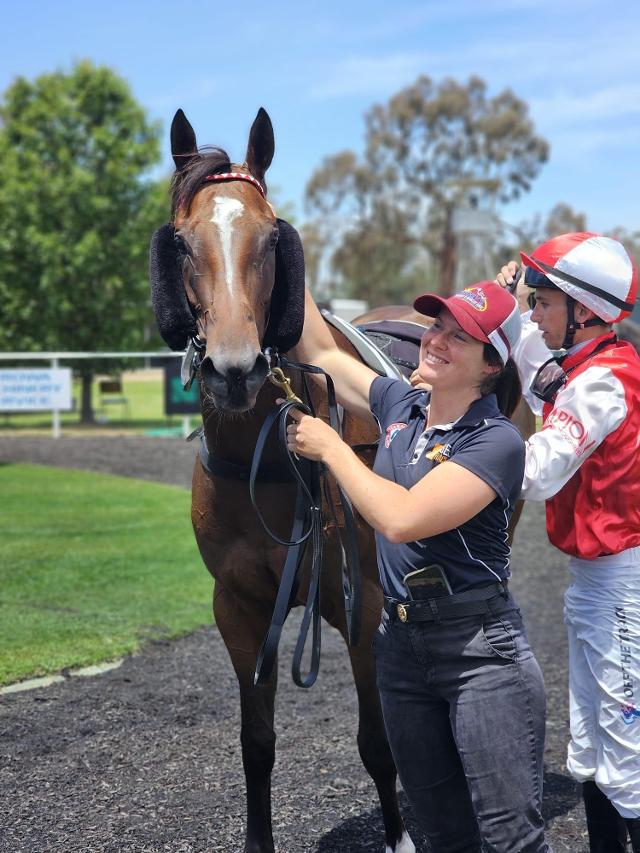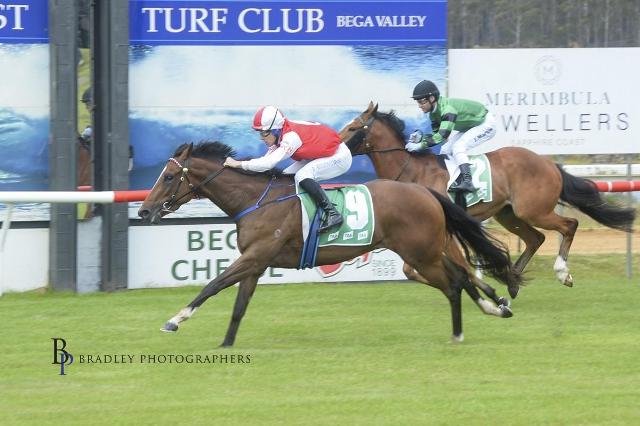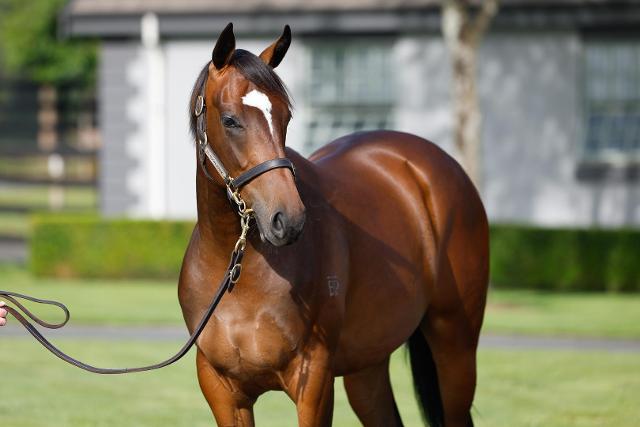Champion Thoroughbreds | Home
Who We Are
Champion Thoroughbreds has been syndicating racehorses in Sydney since 2009. Boutique in size, Champion focuses on an excellent ownership experience with a commitment to outstanding communication, social events and winning results. Join the Champion family and enjoy the thrill of racehorse ownership with a dedicated and experienced team!

SINCE 2009
12+ Years experience in syndication, making Champion one of the more established syndicators in NSW.

OWNERSHIP EXPERIENCE
We pride ourselves on excellent owner communication and regular events including Open Days, Cocktail Parties + much more.

WINNING RESULTS
We've celebrated success at the highest level with multiple Group 1 winners and countless stakes wins.
Stable News

Voltage Lass Sizzles At Corowa For Second Career Win
Jan 4, 2026Progressive Too Darn Hot filly Voltage Lass continued her rapid rise through the grades, notching her second career victory from just three starts with a dominant Class 2 success over 1000 metres at Corowa on Tuesday. The three-year-old, a commanding winner on debut at the Sapphire Coast, again showed her ability at Goulburn last start where she finished a narrow second after racing greenly and laying in under pressure in the straight. The addition of winkers proved the missing piece on this occasion, sharpening her focus and allowing her to put her rivals away by 1.7 lengths in slick time. Jockey Jake Duffy ensured there would be no excuses, taking advantage of a clean getaway to roll forward around the tight circuit. Once in front, Voltage Lass travelled strongly and was never seriously challenged, putting her more experienced opposition to the sword with authority. Trainer Danielle Seib was bullish post-race."This filly has more upside — I really feel she’s going to be better again in six months’ time," Seib said. Purchased for $50,000 from Book 2 of the Magic Millions Yearling Sale, Voltage Lass is shaping as a savvy acquisition. By champion sire Too Darn Hot, whose service fee now commands $275,000, she has already returned $46,550 in prizemoney and appears destined for bigger targets (and prizemoney). Champion Thoroughbreds will again be active at the Magic Millions Yearling Sale from January 13–18. Those interested in upcoming purchases are encouraged to register their interest via racing@championthoroughbreds.com.au.

Voltage Lass Provides Electric Performance On Debut
Dec 4, 2025Too Darn Hot filly Voltage Lass stamped herself as a talent on the rise with a sharp debut victory at the Sapphire Coast on Monday. The three-year-old, prepared by in-form conditioner Danielle Seib, arrived for the 1000m assignment off two tidy jump outs and looked every inch a professional in her race-day introduction. Ridden by the state’s premiership-leading jockey Pierre Boudvillain, Voltage Lass jumped on terms and landed in a stalking position behind a genuine early speed. Angling off the heels of Reveillion on the home bend, she was forced to pick herself up again at the 200m when Dawn On Me shifted out abruptly, hampering her momentum. But the filly responded with purpose, lengthening late to score by a decisive length. “She was very professional today and she’ll only improve off that,” Seib said post-race. “There’s plenty of upside for her owners, so it’s exciting.” A $50,000 Magic Millions purchase from the Coolmore draft, Voltage Lass is out of the speedy Hinchinbrook mare Countercurrent, herself a two-time winner and already the dam of two winners from as many runners. She is by Darley’s headline stallion Too Darn Hot, who commanded a $275,000 service fee this season. The win continues a hot run for Seib, who is operating at an impressive 31.2% strike-rate in country races and sits fifth on the premiership ladder.

Well Done, Sir Loyne
Oct 30, 2025Progressive three-year-old Sir Loyne was perfectly seasoned ahead of his third career start at Wyong on Thursday — and he certainly served up a performance to savour. The Peltzer (So You Think) gelding was the first winner for the Michael Freedman and Champion Thoroughbreds duo, and the way he won suggested there’s plenty more sizzle to come. After showing promise in a nice debut effort earlier this month — finishing fifth in a hot midweek maiden behind subsequent Group winner Shangri La Boy and Victoria Derby contender Providence — Sir Loyne marinated nicely from that run to post a strong second at Hawkesbury over 1600m. On that occasion he ran into the prime cut of the field in $1.5 million Dundeel colt Columbus, but at Wyong on Thursday Sir Loyne finally got his chance to carve up the competition in the 1625m maiden. Sent out a short-priced favourite under Regan Bayliss, the gelding jumped straight to the lead and never looked in doubt, posting an impressive 3.6 length win. Stable representative Sophie Johnson said the stable was delighted with what Sir Loyne served up. “He’s taken a bit of time to mature and find his feet, but he really put it all together today,” Johnson said.“He pricked his ears to the line, and it was great to get that first winner for Champion Thoroughbreds — it certainly hit the spot.” An $80,000 Magic Millions purchase from Twin Hills Stud, Sir Loyne is a half-brother to Group III winner Vagrant and is the fourth winner from four foals to race from My Obsession — a metro-winning Lonhro mare from the family of Group I winner Ugo Foscolo. My Obsession has proven a prime producer for Twin Hills, who snapped her up for $110,000 at the 2018 Magic Millions National Broodmare Sale. Sir Loyne is also the fifth winner for Twin Hills Stud’s young So You Think stallion Peltzer, whose growing list of top cuts includes stakes-winner Buccleuch and G3-placed Thanks Gorgeous. If Thursday’s win is any indication, Sir Loyne could be a stakes for for the future.






